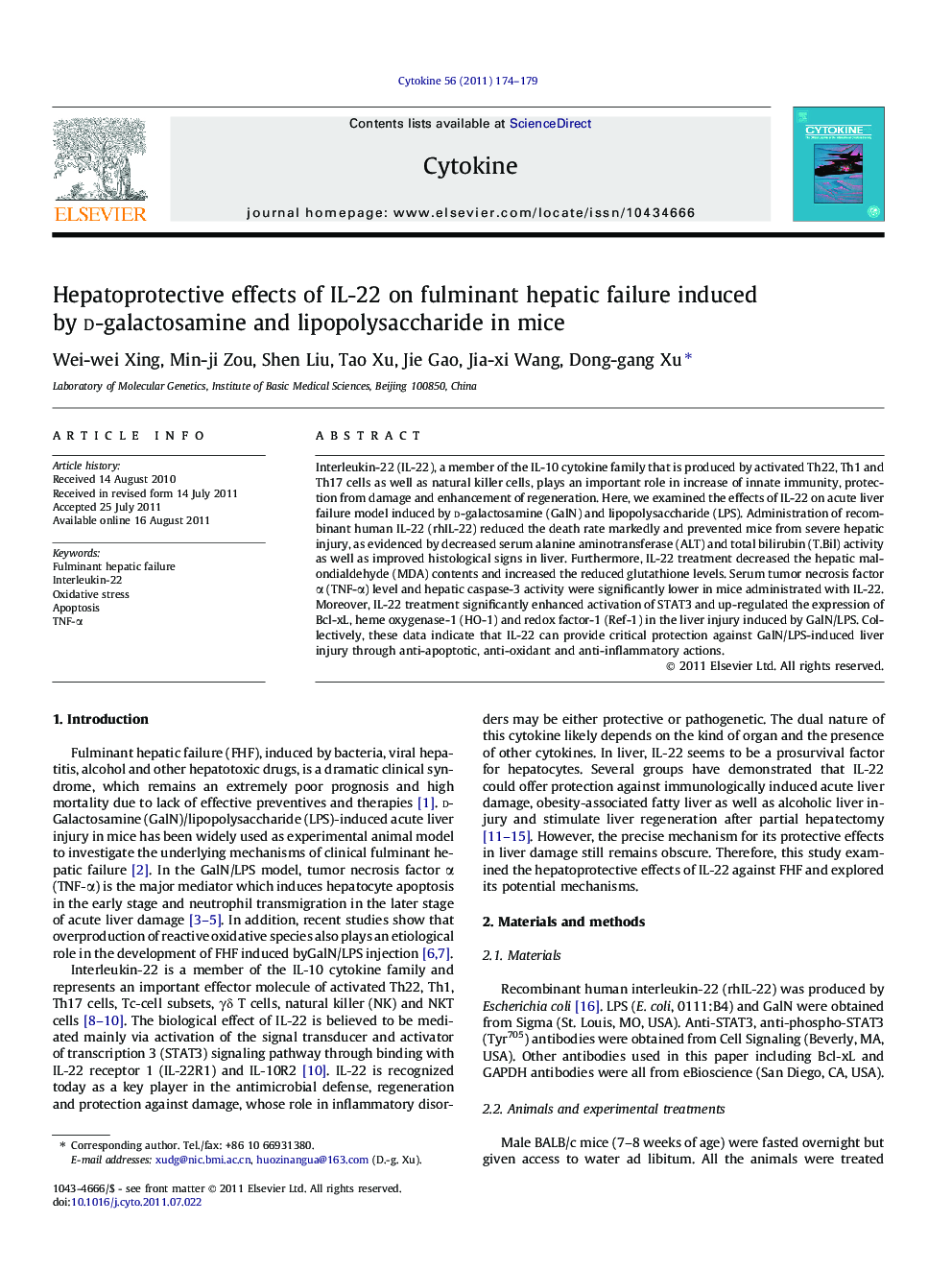| Article ID | Journal | Published Year | Pages | File Type |
|---|---|---|---|---|
| 5898137 | Cytokine | 2011 | 6 Pages |
Interleukin-22 (IL-22), a member of the IL-10 cytokine family that is produced by activated Th22, Th1 and Th17 cells as well as natural killer cells, plays an important role in increase of innate immunity, protection from damage and enhancement of regeneration. Here, we examined the effects of IL-22 on acute liver failure model induced by d-galactosamine (GalN) and lipopolysaccharide (LPS). Administration of recombinant human IL-22 (rhIL-22) reduced the death rate markedly and prevented mice from severe hepatic injury, as evidenced by decreased serum alanine aminotransferase (ALT) and total bilirubin (T.Bil) activity as well as improved histological signs in liver. Furthermore, IL-22 treatment decreased the hepatic malondialdehyde (MDA) contents and increased the reduced glutathione levels. Serum tumor necrosis factor α (TNF-α) level and hepatic caspase-3 activity were significantly lower in mice administrated with IL-22. Moreover, IL-22 treatment significantly enhanced activation of STAT3 and up-regulated the expression of Bcl-xL, heme oxygenase-1 (HO-1) and redox factor-1 (Ref-1) in the liver injury induced by GalN/LPS. Collectively, these data indicate that IL-22 can provide critical protection against GalN/LPS-induced liver injury through anti-apoptotic, anti-oxidant and anti-inflammatory actions.
⺠rhIL-22 protects against fulminant hepatic failure in mice induced by GalN/LPS. ⺠IL-22 inhibits oxidative stress and apoptosis in liver. ⺠IL-22 suppresses elevation of TNF-α in serum. ⺠IL-22 induces STAT3 activation and upregulates expression of Bcl-xL, HO-1 and Ref-1.
